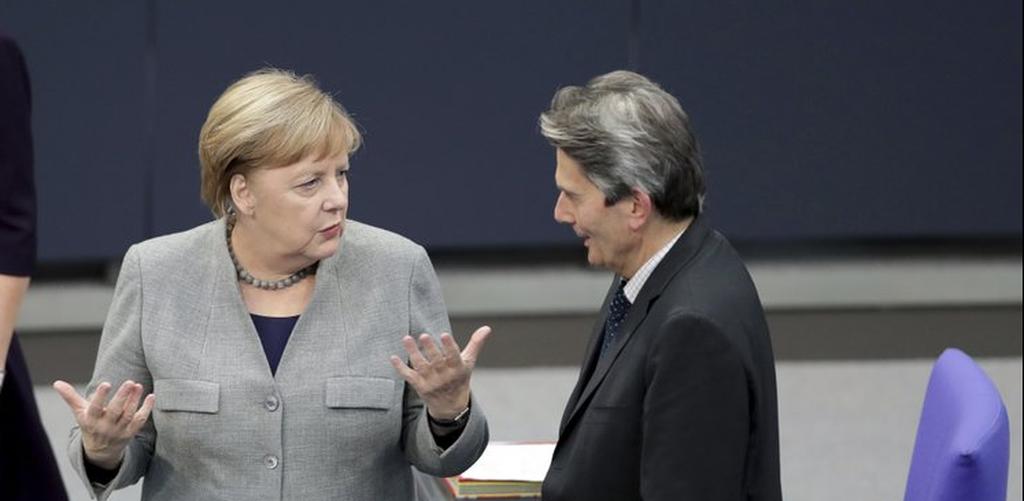Chancellor Angela Merkel on Wednesday defended Germany’s voting record on Israel at the United Nations, arguing that supporting the country doesn’t mean backing all of its actions.
The Jerusalem Post reported last week that the Los Angeles-based Simon Wiesenthal Center criticized Germany’s ambassador to the U.N., Christoph Heusgen, for casting “anti-Israel votes” among other things. The German government strongly backed Heusgen, who previously served for years as Merkel’s foreign policy adviser.
“A commitment to the state of Israel ... does not mean 100% agreement with all of Israel’s political actions,” Merkel said during a regular question-and-answer session in the German parliament.
She noted that European Union countries consult on how to vote at the U.N., where Germany is currently serving a two-year stint on the Security Council.
Germany works to try to ensure that “all tendencies that we can influence that could embody an anti-Israel stance” are removed from resolutions, she added. “So I think we are doing good work.”
Germany and other European countries haven’t joined the U.S. in recognizing Jerusalem as Israel’s capital and continue to criticize Israeli settlement activity in the West Bank.
The European Court of Justice ruled in November that EU countries must identify products made in Israeli settlements in the West Bank on their labels.
The decision was welcomed by anti-Israeli rights groups including the Boycott, Divestment and Sanction (BDS) movement.


